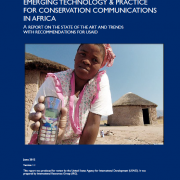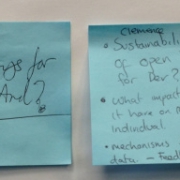Uganda Blames Food Price Protests on Media
Protests over rising fuel and food prices continue despite Ugandan government attempts to slow them down by blocking Facebook, Twitter, and censoring media content.
Last week, President Yoweri Museveni cited social media and negative media coverage as primary proponents of fueling social unrest amid state led violence.
Protestors boycotted fuel purchases by “walking to work” for the past two months in an effort to demonstrate against the government spending at a time of heightened government expenditures.
In Uganda, the price of staples such as wheat have increased up to 40%, according to the World Bank.
UCC wrote to all ISPs last month asking them to block access to the two social media websites for 48 hours, but their request was denied.
“If someone is telling people to go and cause mass violence and kill people and uses these media to spread such messages, I can assure you we’ll not hesitate to intervene and shut down these platforms,” Godfrey Mutabazi, executive director of the Uganda Communications Commission (UCC) stated last month.
The Uganda’s communications regulator relies on Internet service providers to enforce their demands, as they cannot block access to the sites themselves.
Separately, last week Museveni described both local and international media, like the BBC, as “enemies of the state” at a time when journalists are reporting brutal assaults and harassment by security forces.
Journalists have imposed a news blackout on the Ugandan government in protest against what they described as rising brutality against covering demonstrations over the high prices. The media blackout includes official police and army functions.
Following Museveni’s warning this week, the outgoing Minister for Information, Kabakumba Masiko, told BBC’s Network Africa program that Ugandan laws would be amended to deal with any journalist who behaves as an “enemy of the state”.
She state on the program:
If you look at the way these media houses have been reporting what has been going on in our country, you realise they were inciting people and trying to show that Uganda is now ungovernable, is under fire as if the state is about to collapse.
Early last year the minister took a proposed Press and Journalist Amendment Bill to the Cabinet, where it creates a new publication offense of “economic sabotage”.
If passed, the law would give absolute dominance to Media Council, the statutory regulator, the authority to revoke the license of any media outlet that publishes “material that amounts to economic sabotage”.
The officials’ efforts are part of a recent trend by autocratic governments to block social media sites and having media blackouts to control social movements.
The US State Department spokesman issued a statement of concern in how blocking communication mediums adversely affects civil society.
“We are also concerned by reports that the Ugandan government has attempted to restrict media coverage of these protests and, on at least one occasion, block certain social networking websites,” the statement said.
The ongoing role of social media and the concurrent suppression of media freedom in anti-government protests make governments’ actions against civil society measurable and accountable.
It is clear that the future of reporting will be increasingly difficult for authoritarian countries to really control what their people see and hear.








































